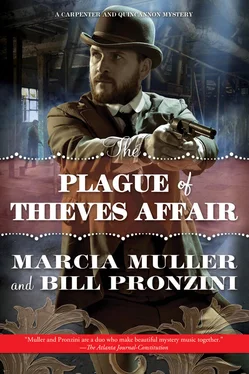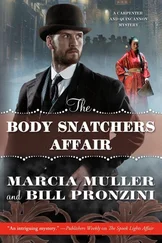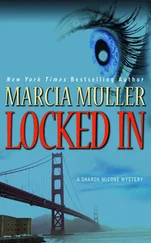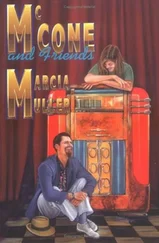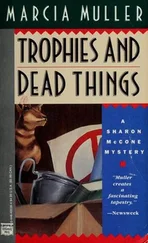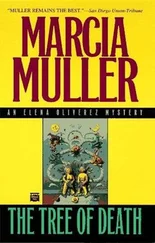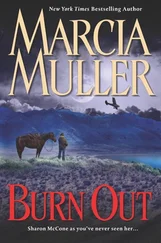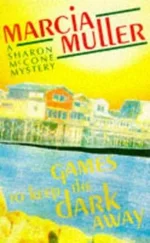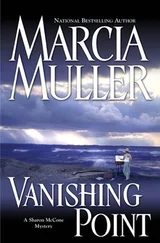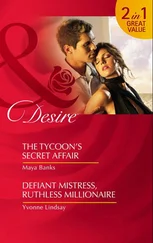It took Slick Fingers less than fifteen minutes to crack this box. In his high-road world, the job had indeed been a piece of cake.
As soon as he had the door open, Quincannon knelt beside him and began to sift through the contents. The safe contained all sorts of documents, a banded packet of greenbacks — and in an unmarked manila envelope, two pages of hen-scratch jottings that were clearly the ingredients and measurements for the manufacture of steam beer.
“That what you’re after, Mr. Quincannon?”
“It is.”
Slick Fingers looked longingly at the sheaf of greenbacks. “Sure there’s nothing else you want?”
“I’m sure. Close the safe now and we’ll be on our way.”
They encountered no trouble leaving the building or the neighborhood. On Market Street, before they parted to take early-morning trolleys in opposite directions, Quincannon reassured Rigsby that he would be paid his $250 on the morrow, and made the cracksman even happier by adding that he would also receive a bonus for a job well done. With Otto Ackermann’s recipe safely in his possession, Quincannon could afford — or rather, James Willard could afford — to be magnanimous.
On his way home for a few hours of much-needed sleep, Quincannon’s spirits were high. The irony in tonight’s successful mission was a pleasure to contemplate. He might not be able to prove that Cyrus Drinkwater was behind the original theft of the recipe, but once the old scoundrel discovered it was missing from his safe, neither would he be able to prove that Quincannon was responsible. Ordinarily such a potential stalemate would have meant the job he’d been hired to do was left unfinished. Not so in this case. He had solved the murders of Otto Ackermann and Caleb Lansing, ranged far in order to yaffle the perpetrator, and recovered the stolen property which he would soon place in James Willard’s hands.
No detective could have done more to satisfy his client, earn his fee, and serve the interests of justice.
The envelope was mixed in with several others that had been pushed through the slot in the agency door. But it had not been delivered by the postman; it bore no stamp or address, only Sabina’s name. The penmanship told her immediately whom it was from.
At her desk she slit open the envelope. Inside were two sheets of good-quality vellum paper, both completely filled with writing in the same familiar Spencerian hand.
My dear Mrs. Carpenter:
I must apologize for my failure to return after summoning the police yesterday, thus leaving you and Mr. Boone the task of rendering explanations. You may have considered my disappearance, as it were, to be a cowardly act, and in a sense so it was. However, I simply could not countenance a long interrogation in which my lineage would have yet again been questioned by police officials and representatives of the legal profession. The possibility that I might be forcibly shipped off to Chicago and entangled in a pointless legal rumpus over the estate of a stranger was also a factor in my decision. Protection of both my good name and my good works must take precedence over all other considerations.
For the same reason, I have concluded that I must with all dispatch finally take my leave of your fair city. The publicity I have received regarding this odious Fairchild affair, as well as that of the incident at the Rayburn Gallery, makes it extremely difficult if not impossible to continue my private inquiries here. By the time you receive this missive, I shall have pulled up stakes, as you Americans so quaintly put it, and sped upon my way.
I do not yet know my next destination. Perhaps I shall return directly to England and my Baker Street lodgings, put the good Doctor Watson’s mind at rest as to my welfare, and openly resume my practice as a consulting detective. On the other hand, perhaps I shall take up temporary residence in another American city (though not, of course, Chicago), or in a European metropolis such as Paris or Vienna.
My only regret in leaving so precipitately is that I cannot inform you of my decision, gaze one last time upon your charming personage, and bid you adieu in person. Perhaps this letter, too, is an act of cowardice, but it nonetheless prevents any attempt on your part to dissuade me, as well as any recriminations and tears. We must both console ourselves with the possibility, however remote at this point in time, that I will return to San Francisco one day in future and have the distinct pleasure of once again joining forces with you and the estimable Mr. Quincannon.
Until that day, should it ever come, I wish you continued success in our shared and noble profession, good health, and safe passage wherever you may go.
With respect and admiration,
Your obedient servant,
S. Holmes, Esq.
Sabina set the letter down. Tears! As if she would shed even one over the sudden departure of a delusional individual who was neither British nor a famous detective. Or console herself with the thought that she might be subjected to his interfering ways again! The unmitigated gall of the man, making such ridiculous statements after having left her to the none-too-tender mercies of Lieutenant McGinn and stuffy Harold Stennett, who had been summoned to act on behalf of the Fairchild family’s attorneys, in order to pull the addlepate’s chestnuts out of the fire. She was glad he was gone, glad he would never again pop up unexpectedly at some inopportune time to make her life and her work more difficult with his foolish disguises, his insufferable ego.
And yet—
And yet there was no gainsaying the fact that he also possessed a number of laudable qualities. He’d saved her from being shot by the wild-eyed Octavia Fairchild, hadn’t he? And always treated her in a cordial, even courtly fashion, with as much respect for her sleuthing abilities as his assumed Sherlockian arrogance would allow — more respect than McGinn and Stennett had demonstrated, certainly. And brought her the kitten Eve as a companion for Adam. And helped her and John solve more than one difficult case...
Oh, drat! The truth was she didn’t know quite how she felt about Charles Percival Fairchild III, whether she liked or disliked him, whether she was more delighted or more sorry to have him gone from her life, and the ambivalence was bothersome in the extreme. Appropriately enough, given his tendency to be bothersome in the extreme.
One thing she did know for certain: John would be ecstatic when he learned that the aggravating thorn in his side had finally removed itself. He had never forgiven S. Holmes, Esquire, for providing much of the solution to the Bughouse Affair, thereby stealing his thunder. At times his ego could become as inflated as that of his nemesis, though it never quite swelled to an objectionable degree.
And where was John? He hadn’t been to the agency in three days now, nor left her any kind of message to explain his absence. Sabina had begun to feel pricklings of concern. If anything had happened to him...
Nothing had. Her fears were alleviated shortly past eleven-thirty when he burst into the office, rather like a bewhiskered bull entering a china shop, waving a handful of newspapers and looking both vexed and bleary-eyed. “I’ve just seen these!” he half shouted. “What in heaven’s name have you been getting yourself into?”
“Nothing I couldn’t get myself out of,” she said calmly, managing to conceal her relief that he was unharmed. “As the accounts in those sheets plainly state.”
“Not the one by Homer Keeps in last night’s Evening Bulletin . He as much as accuses you of harboring a fugitive lunatic.”
“A pox on Homer Keeps. The Fairchild misadventure has been satisfactorily resolved.”
Читать дальше
